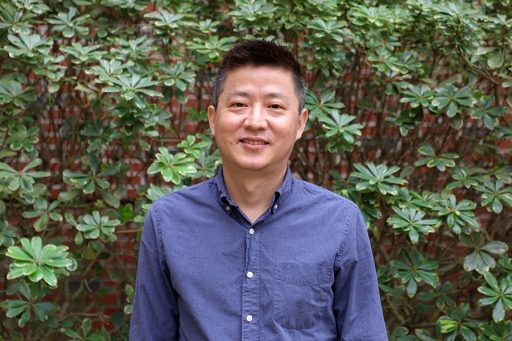
Obesity is a widespread problem, with the National Institutes of Health reporting more than two in five adults in the U.S. are considered obese or severely obese. But what occurs in the brain that leads someone to reach for food, whether they are hungry or not?
A Florida State University researcher has received a four-year, $1.6 million grant from the NIH's National Institute of Diabetes and Digestive and Kidney Diseases to identify the role that a specific group of neurons in the brain play in driving hunger-motivated, or homeostatic, food seeking and eating, and how these may differ from the neural mechanisms that impact non-hunger motivated, or hedonic, food seeking and eating.

Xiaobing Zhang, an assistant professor in the FSU Program in Neuroscience, is the lead investigator for the research. The grant comes on the heels of a five-year, $1.8 million NIH grant Zhang's lab received in 2021 to study how certain neural circuits in the brain regulate eating behaviors.
Zhang's previous study revealed that a brain region located between the thalamus and hypothalamus, the zona incerta, plays a critical role in controlling food intake. This latest research aims to identify how a small group of zona incerta neurons drive hunger-motivated behaviors, and how they compare to neurons that regulate the motivation for hedonic eating.
In this Q-and-A, Zhang discusses his work and how this research can positively impact public health.
Q: Can you tell us about your area of research and how you first became interested in it?
A: Obesity has become a common disease that seriously challenges public health. Based on the new data provided by the Centers for Disease Control and Prevention, obesity costs the U.S. health care system nearly $173 billion a year. About 15 years ago, I became interested in understanding how the brain controls food intake and what leads to overeating and obesity. My early work was mainly focused on the neurobiology of energy balance in which the brain monitors the energy states of the body by sensing the metabolic hormone signals. However, in the U.S. and other developed countries, increased motivation for food high in fat and sugar causes overconsumption that is not driven by an energy deficit. Cumulative evidence has indicated that overeating of energy-dense fast food is one of the fundamental causes for overweight and obesity globally. Therefore, I became more interested in the neural mechanisms of the brain that regulate motivation for both homeostatic and hedonic eating when I set up my lab at FSU.
Q: What types of work will this grant allow you to conduct?
A: Our brain controls when and what to eat through sensing both internal physiological metabolic signals and external environmental stimuli associated with previous rewarding experience of food consumption. However, how the brain integrates all this information to regulate feeding motivation remains largely unknown. This grant will allow us to study a critical role of a novel dopamine signaling pathway of the brain in the regulation of motivated food seeking, which is normally initiated by energy deficit of the body. With the project granted by this award, we hope to understand how both physiological and psychological hunger signals drive motivation for food intake.
Q: What is most important for the public to know about your work?
A: Although food consumption is an innate behavior we experience every day, what determines the frequency and the size of our daily meals is quite complex. Among all possible factors, motivated food seeking is critical for positively affecting ultimate food consumption when an effort is required for obtaining the food.
In the wild, animals must work vigorously to compete for food with others. Without a strong motivation for food seeking, it is hard for wild animals to survive. In developed countries like the United States, we do not need to fight for food supply since food is widely available. Therefore, overeating often occurs when our motivational effort for food reward surpasses the energy requirement of our body. This is one of the major reasons that obesity is increasing around the world.
Our work funded by this grant will help us to understand not only the neural mechanism for controlling food seeking but also the pathological neural plasticity that causes abnormal feeding motivation that leads to obesity and eating disorders. The hope is that the public will learn from these research findings how they can adjust their behaviors for controlling food consumption. More importantly, we hope our studies will eventually lead to a better strategy for treating obesity and eating disorders.






